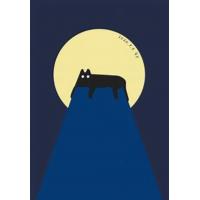Chapter 1:Jane Eyre plot
"Jane Eyre" is a novel written by Charlotte Brontë and published in 1847. It tells the story of its eponymous protagonist, Jane Eyre, as she navigates her life from childhood to adulthood, facing numerous challenges along the way.
The plot of "Jane Eyre" can be divided into several key stages:
- Childhood at Gateshead: The story begins with Jane Eyre's troubled upbringing at Gateshead Hall, where she lives with her cruel aunt, Mrs. Reed, and her cousins. Jane is mistreated and isolated, but she finds solace in books and her vivid imagination. Eventually, Jane is sent away to Lowood School for girls.
- Education at Lowood School: At Lowood, Jane meets new friends and kind teachers, but the school is harsh and oppressive. She befriends Helen Burns, who dies of consumption, leaving a lasting impact on Jane. Later, Jane thrives academically and becomes a teacher at the school.
- Thornfield Hall: Meeting Mr. Rochester: Seeking a change, Jane leaves Lowood to work as a governess at Thornfield Hall, the estate of Mr. Edward Rochester. She develops a deep emotional connection with Mr. Rochester, despite their differences in social status and age. Their relationship grows, leading to Rochester proposing marriage.
- The revelation and obstacles: Just before their wedding, a shocking secret is revealed: Rochester already has a wife, Bertha Mason, whom he married under unfortunate circumstances. Jane refuses to become his mistress and leaves Thornfield, seeking independence and integrity.
- Moor House and St. John Rivers: Jane takes refuge at Moor House, where she befriends three siblings: Diana, Mary, and St. John Rivers. Jane conceals her true identity and assists them in various ways. St. John, a clergyman, proposes marriage for the sake of a missionary trip, but Jane refuses, realizing she does not love him.
- The reunion and happy ending: Jane learns through a telepathic connection that Rochester's life has taken a tragic turn. She returns to Thornfield to find it burned down and Rochester blinded. They reunite and marry, finding happiness despite their challenges.
The plot of "Jane Eyre" explores themes such as social class, gender equality, love, and personal identity. It showcases Jane's journey from a disadvantaged and oppressed position to one of self-discovery, resilience, and ultimately, love and fulfillment.
Chapter 2:Why is Jane Eyre so amazing
Complex and Relatable Protagonist: Jane Eyre is a truly remarkable character who challenges the societal expectations of her time. She is fiercely independent, intelligent, and determined to follow her own path, despite facing numerous obstacles. Readers are drawn to her strong moral compass, resilience, and ability to stay true to herself.
Emotional Depth and Psychological Realism: The novel explores deep emotions and the human psyche in a way that was revolutionary for its time. It delves into themes such as love, self-discovery, identity, and the inner workings of the human mind. Brontë's writing skillfully captures the complexity of human emotions, making readers feel deeply connected to the characters and their experiences.
Feminist Themes: Published in 1847, Jane Eyre challenged the prevailing gender norms of Victorian society. It portrays a female protagonist who strives for independence, equality, and personal fulfillment. The novel highlights issues of gender inequality, social class, and the importance of women's autonomy, making it a significant work in feminist literature.
Powerful Storytelling: Brontë's writing style is both captivating and evocative. Her vivid descriptions bring the settings and characters to life, immersing readers in the world of Thornfield Hall and its inhabitants. The story's twists and turns, secrets, and moral dilemmas keep readers engaged and eager to uncover what happens next.
Timeless Relevance: Despite being set in the early 19th century, Jane Eyre continues to resonate with readers today. Its exploration of universal themes such as love, morality, identity, and the search for belonging remains relevant across different times and cultures.
Influence on Literature: Jane Eyre has had a profound impact on literature and inspired countless authors. Its influence can be seen in subsequent works of fiction that feature strong, independent female characters who defy societal expectations. The novel's exploration of complex emotions and psychological depth has also influenced the development of the modern novel.
Chapter 3:Is Jane Eyre a feminist book
Jane Eyre challenges traditional gender roles and societal expectations placed upon women during that time. The protagonist, Jane Eyre, is portrayed as a strong-willed and independent woman who refuses to conform to the limited roles available to women. She seeks personal and emotional fulfillment rather than solely relying on marriage for her identity and happiness.
Throughout the novel, Jane asserts her own worth and fights against the inequality she encounters. She questions social norms and institutions that suppress women's voices, such as the oppressive Lowood School and the restrictive Victorian marriage market. By asserting her individuality and demanding respect, Jane Eyre challenges the notion that women should be submissive and dependent.
Furthermore, the novel explores themes of equality, self-discovery, and the pursuit of personal freedom, which are central to feminist ideology. It raises questions about gender, class, and power dynamics, highlighting the limitations placed on women and advocating for their rights and autonomy.
However, it is important to note that interpretations of literature can vary, and not everyone may agree on whether or to what extent Jane Eyre can be classified as a feminist book. Nevertheless, its portrayal of a resilient female protagonist challenging societal norms has contributed to its recognition as an early feminist work.
- 00:00Kapitel 1
RSS Feed
Apple Podcast
Google Podcast
Spotify
Deezer
Wähle deinen Podcatcher oder kopiere den Link:
https://meinpodcast.de/reading-recap-book-summaries/feed

